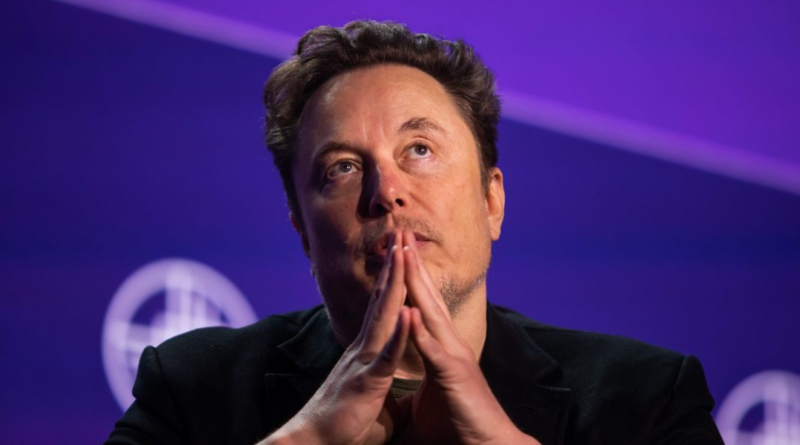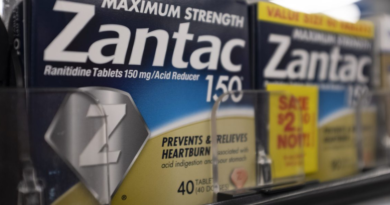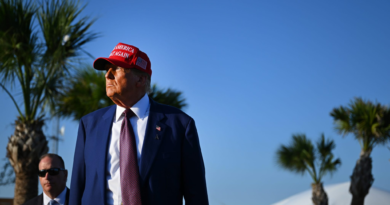Musk says he’ll lock iPhones in an electromagnetic cage at his businesses after Apple announces OpenAI partnership
A little over 12 hours ago, Apple announced that OpenAI’s ChatGPT would be integrated into its technology, and Tesla CEO Elon Musk wasted no time battening down the hatches against the rival technology.
Formerly the world’s richest man, Musk is developing his own artificial intelligence models at EV maker Tesla and startup xAI.
xAI has already released a large language model named Grok.
But not only is ChatGPT a competitor to Musk’s own offerings, the entrepreneur also has an acrimonious history with the Sam Altman–led company.
Musk was one of the earliest backers of the AI company and served as one of its first cochairs (alongside Altman) when it launched.
The relationship soured when Musk left in 2018. A war of words and rival products ensued, culminating in Musk launching an ongoing lawsuit against Altman and OpenAI.
It’s therefore little surprise to witness Musk’s fury upon hearing Apple’s announcement yesterday that it is “integrating ChatGPT access into experiences within iOS 18, iPadOS 18, and macOS Sequoia, allowing users to access its expertise—as well as its image- and document-understanding capabilities—without needing to jump between tools.”
Musk aired his concerns about the partnership on his social media platform, X, formerly known as Twitter.
“If Apple integrates OpenAI at the OS level, then Apple devices will be banned at my companies,” he wrote. “That is an unacceptable security violation.
“And visitors will have to check their Apple devices at the door, where they will be stored in a Faraday cage.”
A Faraday cage is used to block some electromagnetic fields.
If Apple integrates OpenAI at the OS level, then Apple devices will be banned at my companies. That is an unacceptable security violation.
— Elon Musk (@elonmusk) June 10, 2024
‘New standard for AI privacy’
Apple outlined a raft of privacy measures related to AI at this week’s Worldwide Developers Conference in California.
While CEO Tim Cook said the company’s new AI strategy and features, named Apple Intelligence, is the “next big step” for his company, the organization also laid out what it believes is a “new frontier” for privacy in artificial intelligence.
The cloud intelligence system, named Private Cloud Compute (PCC), was created to “make sure that personal user data sent to PCC isn’t accessible to anyone other than the user—not even to Apple.”
Apple’s 10-page, near-4,000-word announcement of PCC also promises “more to come” from the company on user privacy and forms only part of its AI security strategy.
Alongside the reveal of the PCC system—which Apple said independent experts can inspect to verify privacy—the company, with an approximately $3 trillion market cap, specifically addressed concerns relating to OpenAI.
It said: “Privacy protections are built in for users who access ChatGPT—their IP addresses are obscured, and OpenAI won’t store requests. ChatGPT’s data-use policies apply for users who choose to connect their account.”
An announcement by OpenAI mirrored the pledges: “Privacy protections are built in when accessing ChatGPT within Siri and Writing Tools—requests are not stored by OpenAI, and users’ IP addresses are obscured.”
Musk is seemingly unconvinced, particularly because Apple is using an outside source instead of building its own.
He wrote on X: “It’s patently absurd that Apple isn’t smart enough to make their own AI, yet is somehow capable of ensuring that OpenAI will protect your security and privacy. Apple has no clue what’s actually going on once they hand your data over to OpenAI. They’re selling you down the river.”
Apple and OpenAI did not immediately respond to Fortune’s request for comment.
It’s patently absurd that Apple isn’t smart enough to make their own AI, yet is somehow capable of ensuring that OpenAI will protect your security & privacy!
Apple has no clue what’s actually going on once they hand your data over to OpenAI. They’re selling you down the river.
— Elon Musk (@elonmusk) June 10, 2024
On a roll with his criticism of the partnership, Musk continued to post a meme showing Apple and OpenAI sharing the data gathered from iPhones, before adding: “Here’s the problem with ‘agreeing’ to share your data: Nobody actually reads the terms and conditions.”
Grok phone
Musk fans are used to the billionaire teasing them about what he might be working on next—and for years, they have theorized about whether a Musk entity will release a smartphone.
The partnership between Apple—which the SpaceX owner has found himself in a bunfight with before—and OpenAI has reignited these rumors and were stoked by Musk himself.
One user on X said they wanted a Grok phone, to which Musk replied: “If Apple actually integrates woke nanny AI spyware into their OS, we might need to do that!”
When another user suggested X might link up with an Android-phone maker for a product, Musk added: “It is not out of the question.”




